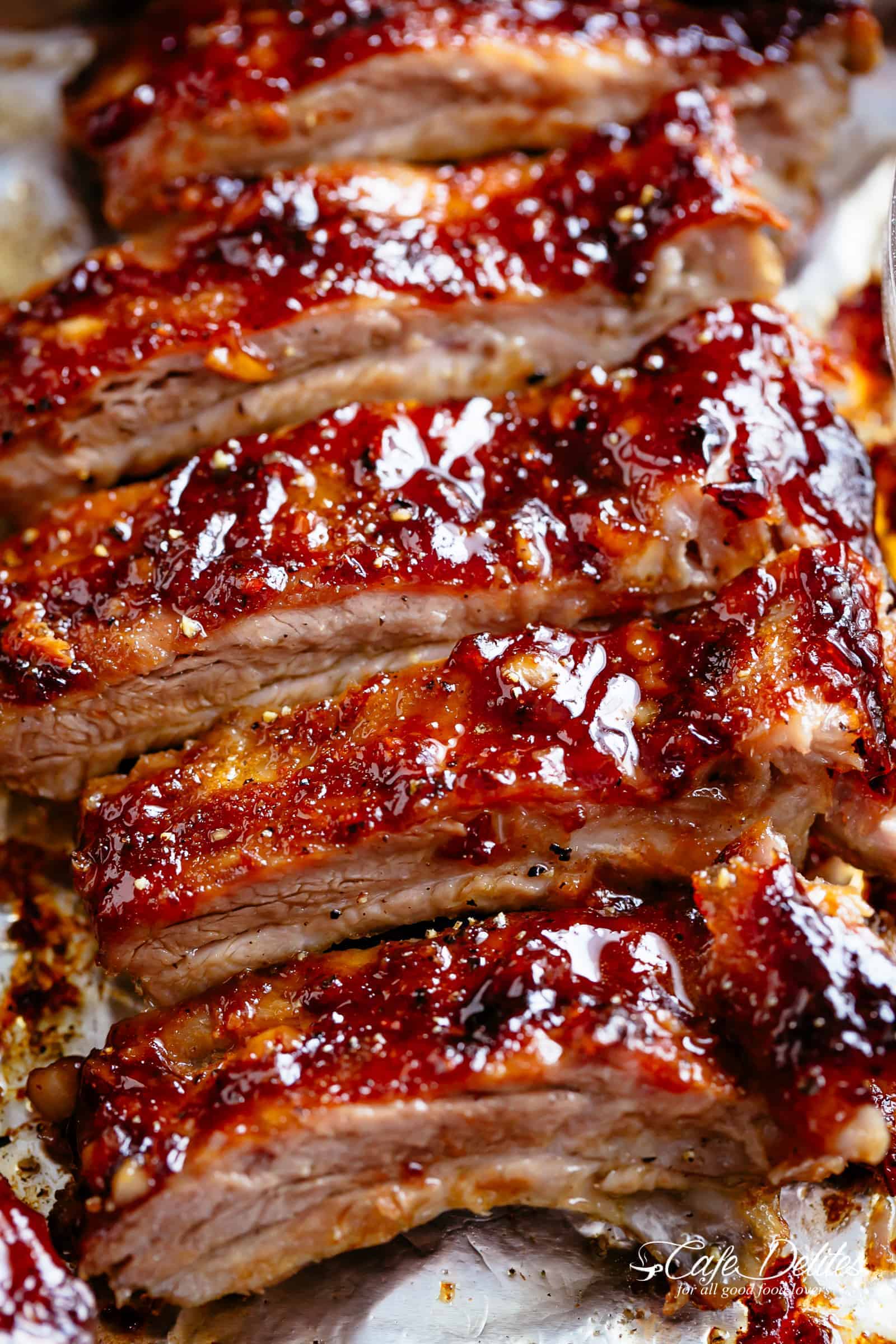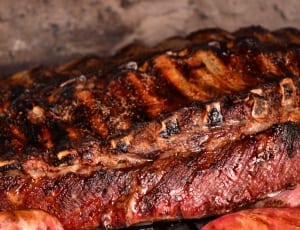Is It Better To Boil Or Bake Pork Ribs?
Boiled Pork Ribs
Benefits
Boiled Pork Ribs: Benefits
Tender Meat: Boiling pork ribs for an extended period tenderizes the meat, making it fall-off-the-bone tender.
Enhanced Flavor: The boiling course of infuses the ribs with the flavors of the broth, making a rich and savory taste.
Collagen and Gelatin Release: Boiling extracts collagen and gelatin from the ribs, which provides moisture, tenderness, and a shiny look to the meat.
Cost-Effective: Boiling is a relatively cheap cooking methodology compared to different strategies similar to grilling or braising.
Versatility: Boiled pork ribs can be utilized in numerous dishes, including soups, stews, salads, and even tacos.
Healthier Option: Boiling removes extra fat from the ribs, making them a healthier various to other cooking strategies that add additional calories.
Convenience: Boiling pork ribs is a comparatively hands-off cooking technique that requires minimal effort and a focus.
Drawbacks
Drawbacks of Boiling Pork Ribs
While boiling is a simple and handy cooking methodology, it does come with some drawbacks in relation to pork ribs.
Tough and Dry Meat: Boiling ribs in water can lead to tough and dry meat. The water attracts out the natural juices and fat from the ribs, leading to a much less flavorful and tender texture.
Lack of Flavor and Browning: Boiling ribs in water alone produces a bland style. The ribs don’t get the chance to develop the caramelized crust or smoky taste that is characteristic of baked or grilled ribs.

Less Versatile: Boiling ribs limits the cooking options. You can not obtain the same crispy, caramelized texture or smoky flavor as you’d with other cooking methods such as grilling, smoking, or roasting.
Potential for Overcooking: Ribs can easily turn into overcooked when boiled. The extended cooking time in water may find yourself in the meat becoming mushy and falling off the bones.
High Fat Content: Boiling ribs can lead to a higher fats content material in the meat. The water can extract some of the fats from the ribs, forsaking a much less lean dish.

Overall, while boiling pork ribs is a quick and straightforward method, it does not yield probably the most flavorful or tender results compared to other cooking strategies.
Baked Pork Ribs
Benefits
Baked Pork Ribs
Baked pork ribs are a scrumptious and easy-to-make dish that might be enjoyed by people of all ages. They are a great source of protein and other important nutrients, and they can be cooked in a selection of ways to match your taste.
Benefits of Baked Pork Ribs
- Baked pork ribs are a good supply of protein, which is essential for building and repairing tissues.
- They are also an excellent supply of iron, which is important for pink blood cell manufacturing.
- Pork ribs are an excellent source of zinc, which is necessary for immune function.
- They are also a great source of vitamin B12, which is necessary for nervous system operate.
- Baked pork ribs are a comparatively low-fat food, and they are an excellent supply of fiber.
How To Cook Pork Ribs In Oven to Bake Pork Ribs
To bake pork ribs, you will want the next elements:
- 1 rack of pork ribs
- 1 tablespoon of olive oil
- 1 teaspoon of salt
- 1 teaspoon of black pepper
- 1/2 cup of barbecue sauce
Instructions:
- Preheat your oven to 350 degrees Fahrenheit.
- Place the pork ribs on a baking sheet lined with parchment paper.
- Drizzle the pork ribs with olive oil and season with salt and pepper.
- Bake the pork ribs for 1 hour, or until they are cooked by way of.
- Remove the pork ribs from the oven and brush with barbecue sauce.
- Return the pork ribs to the oven and bake for an additional 15 minutes, or till the sauce is caramelized.
- Serve the pork ribs with your favourite sides.
- Less preparation: Requires solely seasoning and water.
- Shorter cooking time: Typically boils within 1-2 hours.
- More versatility: Allows for adding marinades, rubs, and sauces throughout cooking.
- Hands-off cooking: After preliminary preparation, ribs may be left to bake unattended.
- Can be cooked in batches: Multiple racks of ribs can be baked concurrently.
- Boiling: Quick and straightforward, however much less flavorful.
- Baking: Less hands-off, however provides more customization and flavoring choices.
- Tenderizes meat slowly and evenly
- Reduces fats content material by way of rendering
- Can result in overcooked meat if left for too long
- Requires more time than baking
- Suitable for larger cuts of powerful meat
- Faster cooking time than boiling
- Even browning and caramelization of meat surface
- Less tender than boiled meat due to much less time in liquid
- Requires closer monitoring to keep away from burning
- Suitable for smaller cuts of tender meat
Drawbacks
Drawbacks of baking pork ribs:
Baking pork ribs is often a time-consuming course of, because the ribs must be cooked slowly and at a low temperature to make sure that they are tender and juicy.
Baked pork ribs can be messy, because the ribs can release plenty of juices and grease during the cooking process.
Baked pork ribs could be difficult to prepare dinner evenly, because the ribs is in all probability not the same thickness throughout. This can outcome in a variety of the ribs being overcooked while others are undercooked.
Comparison of Boiling vs. Baking
Tenderness
Boiling
– Results in additional tender meat than baking
– Less flavorful than baking
– More more doubtless to end in overcooked meat
Baking
– Results in less tender meat than boiling
– More flavorful than boiling
– Less likely to result in overcooked meat
Flavor
Boiling is a moist-heat cooking technique that involves submerging food in a liquid and bringing it to a boil. The liquid can be water, broth, or a combination of both. Boiling is a relatively light cooking methodology that helps to keep meat tender and juicy. However, it might possibly also outcome in the lack of some nutrients and flavor.
Baking is a dry-heat cooking method that includes exposing meals to sizzling air in an oven. Baking is a versatile cooking methodology that can be used to prepare dinner a variety of foods, including meat, poultry, fish, and vegetables. Baking may help to develop flavor and create a crispy crust on the outside of the meals. However, it could additionally outcome within the meat becoming dry and tough if it is overcooked.
When it involves cooking pork ribs, there are professionals and cons to each boiling and baking.
Boiling pork ribs is an efficient choice if you need to obtain tender, fall-off-the-bone ribs. The moist heat of the boiling liquid helps to break down the connective tissue in the ribs, resulting in a tender and juicy texture. Boiling also helps to seal in the taste of the ribs.
However, boiling pork ribs can also result within the lack of some nutrients and flavor. The water used for boiling can leach out a variety of the ribs’ natural juices and flavors. Additionally, boiling can make the ribs seem pale and unappetizing.
Baking pork ribs is an efficient choice if you would like to obtain a extra flavorful and crispy rib. The dry warmth of the oven helps to caramelize the ribs’ floor, creating a scrumptious crust. Baking also helps to develop the ribs’ pure flavors without dropping as many nutrients as boiling.
However, baking pork ribs can lead to the meat turning into dry and hard whether it is overcooked. It is necessary to carefully monitor the ribs whereas they are baking and to take away them from the oven as soon as they’re cooked by way of.
Ultimately, the best way to prepare dinner pork ribs depends on your personal preferences. If you prefer tender, fall-off-the-bone ribs, then boiling is an efficient option. If you like more flavorful and crispy ribs, then baking is a better choice.
Convenience
Boiling vs. Baking Pork Ribs: Convenience Comparison
Convenience of Boiling:
Convenience of Baking:

Overall:
The choice between boiling or baking depends on personal preferences and time constraints. For quick and convenient meals, boiling is a suitable option. For a extra flavorful and customizable expertise, baking is the beneficial alternative.
Time
Boiling:
Baking:
